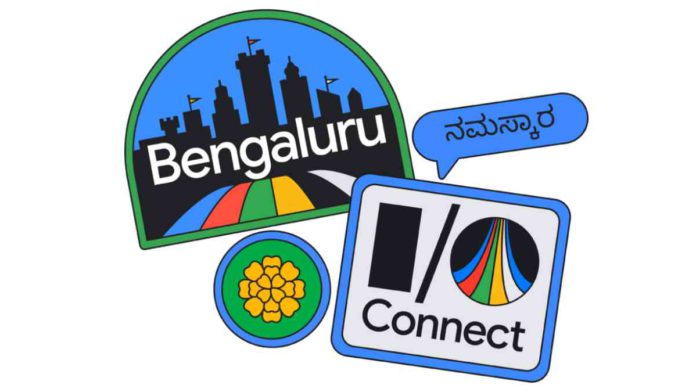Google I/O Connect event covered several AI-powered tools and technologies for developers in India to build scalable and high-quality solutions in the most creative way. This event was conducted in Bengaluru, India, on June 28, 2023.
LLM Model
At the I/O Connect event, Google announced the availability and access to its new Large Language Models (LLM) PalM 2 for Indian developers. Through this LLM model, Google will help developers build custom enterprise-ready generative AI applications. Following the same, Google tweeted, “Developers in India will now have access to both PaLM API and Makersuite”.
Project Vaani
At the event, they also discussed Project Vaani, which was launched last year by Google in collaboration with the Indian Institute of Science (IISc) to digitalize Indian languages using AI. The project aims to collect anonymous speech data from people across 773 districts in India. Further, Google also mentioned IISc is now open-sourcing the datasets that have been collected over a year. Developers can now access over 4,000 hours of speech data across 38 languages, collected from 10K+ speakers from 80 districts. With the help of these datasets, developers can create their own applications that reflect how local languages are spoken and cater to customer needs.
Accelerator Program for ONDC
Google also launched an accelerator program for ONDC (Open Network for Digital Commerce). It is an initiative to help startups and businesses with the necessary resources to accelerate their digital commerce operations. To support the growth of India’s digital sellers, Google Cloud open-sourced a ready implementation of ONDC infrastructure and core APIs. Businesses and startups can now use Google Retail AI technology to enhance their search experiences on the network. Additionally, access to PaLM API will also help increase the quality of catalogs using generative AI.
Google also announced a startup credits program for eligible businesses under which businesses will get a $25,000-grant if they are ONDC enabled.
Project Bindi
Google members also talked about their Project Bindi, which was launched last year to evaluate biases in Natural Language Processing (NLP) present in the Indian socio-cultural context. Since then, Google has built a SeeGull Database, which is now open-sourced, a global stereotype benchmark with broad geo-cultural coverage. They soon plan to share this database with the developers.
Build generative AI applications with PaLM API, MakerSuite, and Vertex AI
Google announced several tools which will be available for Indian developers, including Vertex AI, PaLM API, MakerSuite, and features within Google Maps like Address Descriptors. Apart from this, to help developers build custom and enterprise-ready generative AI applications, Google has made Generative AI support available on Google Cloud’s Vertex AI.
Further, they introduced three new models in Vertex AI, including Codey, Chirp, and Imagen. Codey is a powerful code completion and generation tool to enhance a developer’s coding speed. Developers can train this model on their own code to quickly build applications. Chirp is a universal speed model that brings speech-to-text accuracy for over 300 languages. Last from Vertex AI was the Imagen tool, used to create and edit images from text inputs.
Improved Maps
Google also unveiled Address Descriptor, designed for Indian developers to build geospatial experiences for Indian cities. It is an Indian-first experiment that is now available in more than 25 Indian metro cities. Using this feature, developers can help their users efficiently find addresses by sharing the most relevant and nearest landmarks and area names.
Read More: Google and Startup India Launches Startup School’s 2023
Features for a Multi-device World
In partnership with Samsung, Google’s next launch was the Watch Face Format feature, a new declarative XML format. It will help developers to effortlessly build and launch an app on Wear OS. In addition, they also introduced Compose for TV, which is currently in the alpha development stage. This technology will help developers seamlessly build native TV apps with the support of an optimized library of components provided by Google.
Conclusion
These were the number of tools and technologies announced by Google to help Indian developers harness the power of AI. Not only will these tools help developers build powerful applications for a variety of platforms, but they will also give them an opportunity to unlock the power of AI.



